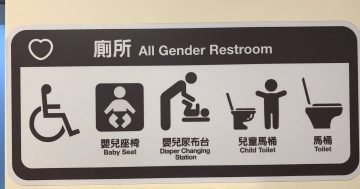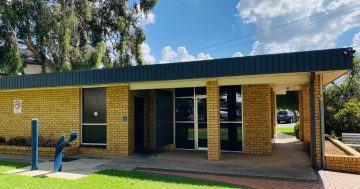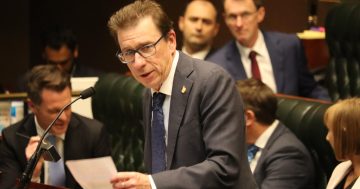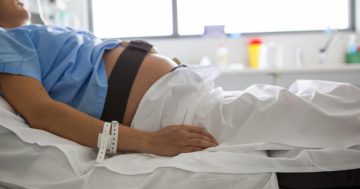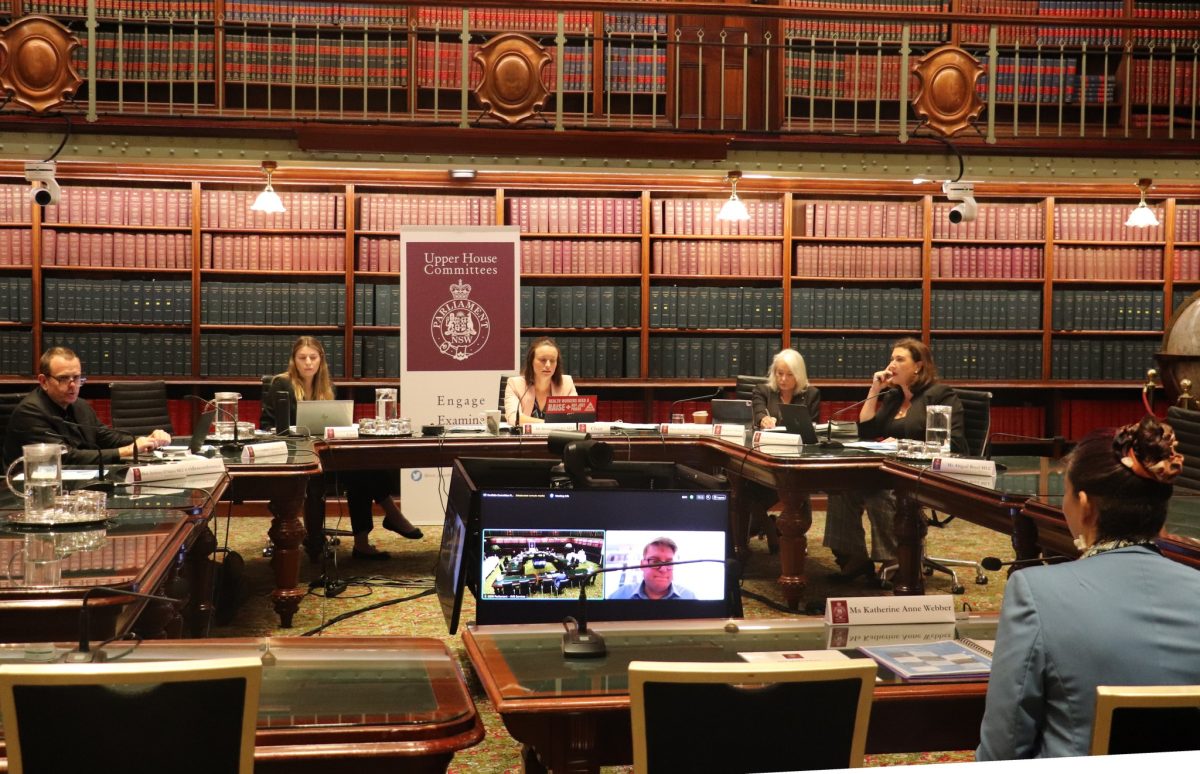
A hearing of the public toilet inquiry, chaired by Dr Amanda Cohn. Photo: NSW Legislative Council.
All-gender bathrooms can benefit women and parents as well as non-binary people, a NSW parliamentary hearing was told this week.
The Upper House inquiry into public toilets, chaired by Albury-based Greens MP Amanda Cohn, is investigating the “provision, design, accessibility and inclusivity of public toilets across NSW”.
Several submissions by pro-trans groups argued that people who didn’t identify as either male or female were excluded by the status quo of gendered bathrooms, leading to avoidance, stigma and mental health problems.
The group Parents for Transgender Youth Equity called for all NSW public places with toilets to be mandated to have all-gender toilet options by 2028 and all NSW schools to have all-gender toilet options by 2030.
Dr Rory Gillard, a volunteer for the trans justice project, said women could benefit from this too.
“Studies show that if you do make bathrooms all-gender you radically reduce wait times for women,” they said at a hearing on Tuesday (1 April).
Dr Gillard also argued that all-gender bathrooms would be better for parents and caregivers who were supporting a child of a different gender and people with disabilities entering a toilet with a carer of a different gender.
Dubbo-based Labor MP Stephen Lawrence, who is on a committee overseeing the inquiry, raised the issue that some women may not want to use all-gender bathrooms that men also frequent due to safety concerns.
“All-gender bathrooms aren’t the cause of violence against women, it’s patriarchy, it’s misogyny, it’s gender inequality and those are the things that need to be addressed,” Dr Gillard responded.
“There’s a lack of empirical data both in Australia and internationally that all-gender bathrooms cause violence.”
Dr Kate Toyer, a board member of the Illawarra-Shoalhaven Gender Alliance, agreed.
“I have concerns that a lot of these arguments are applying socially and politically acceptable Band-Aids overlying the underlying issue of men’s violence. Addressing men’s violence isn’t about providing gendered toilets,” she said.
Mr Lawrence said he agreed with the proposition that single unit toilets should not be gendered, saying he couldn’t see why a non-shared space had to be either male or female designated.
“The only thing that occurred to me is that men are considered to be more messy,” he said.
Dr Gillard noted that the University of Sydney Union had developed signage to educate people on the need for all-gender bathrooms. They tabled a version of what signs could tell people.
“If you are uncomfortable about using an all-gender bathroom, you might like to ask yourself why, and consider that this feeling of discomfort is something that many gender diverse people, for instance, face throughout their lives,” the sign would read.
Further hearings on the inquiry are scheduled for Monday 7 April, Monday 28 April and Tuesday 29 April. The parliamentary committee chairing the probe will submit a report to the NSW Government with recommendations in the coming months.







